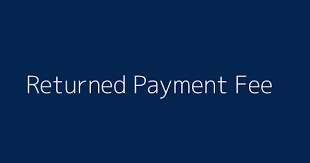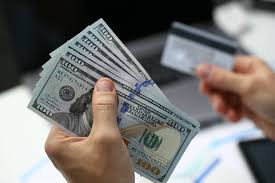An Overview: What Is Returned Payment Fee
Nov 27, 2023 By Triston Martin
Introduction
What is returned payment fee? If you use a check to pay your credit card bill and it bounces, the Bank or financial institution that issued the check might charge you a returned payment fee. Overdraft fees differ from costs related to a payment that the Bank returns. Unlike overdraft costs, which are applied when a transaction would put the account in the red, returned payment fees are assessed when a transaction is entirely denied. Additionally, only clients who have chosen overdraft protection are charged overdraft costs, but all customers are charged returned payment fees whether or not they have chosen overdraft protection.
Return payments are charged plus a service fee to the student's account if a financial institution returns a payment made to the student's account by check, money order, cashier's check, 529 checks, or electronic check (e-check) owing to insufficient funds or a closed account. A service charge of $25 to $40 will be charged, depending on how much the disputed payment was received.
Money orders or cashier's checks are allowed for the service fee and any returned payments. GatorLink will send an email to the student with instructions on how to recover the returned money. The cost is increased by the initial fees and a return payment fee. The student's account is frozen until the fee is paid in full using a money order or cashier's check. The student's past-due bill will continue to be pursued by the bursar's office.

Returned Payment Fees
Returning a payment will result in a charge if your credit card company tries to deduct money from your account but cannot do so due to insufficient funds or for any other reason.
How To Avoid This Fee
Keep a close eye on your finances to ensure you have enough to pay your credit card bills. If you make a credit card payment and discover that your account is short before the payment is processed.
Clauses
A Returned Credit Card Payment's Cost. RAF may charge you $35 if your check or electronic permission is not honoured when it is first presented to them. This Agreement Save Copy Returned Payment Fee is not subject to an annual fee. As a result, the Bank can impose a returned payment fee on the Borrower if a payment is returned to it or if insufficient funds are in the designated account when an automatic payment is made.
Keep a copy of the Returned Payment Fee for your records. Suppose you do not honour or return any unpaid payment made through Your Account (including any ACH or electronic payment) for any reason. In that case, you may be charged a returned payment fee (including for lack of signatures or authorizations).An expense for reversing a payment. You may be charged a fee following the terms outlined in the Disclosure if you request that we stop payment on any checks drawn on your Accounts, such as a check for a Cash Advance or a check for a Balance Transfer.
Returned Payment Fee Savings Copy. There won't be a fee if your check or money order is returned as unpaid. Cost of Replacing a Returned Item If we decide not to honour a convenience check or if the payment on a convenience check is withheld at your request, you can be charged a returned item fee. Our policy is to charge a $25 Returned Item Fee if we decide not to honour a convenience check or if you request to stop payment on a convenience check for the first time ("First Occurrence"). If following the First Occurrence, we reject a convenience check, or you want to suspend the payment of a convenience check at any point during the next six billing cycles, you can be subject to a $35 returned item fee ("Second Occurrence").
How Do I Proceed If My Payment Is Rejected Due To Insufficient Or Uncollected Funds?
If your Bank refuses your payment, we may charge a return payment fee in addition to any late fees that may apply under your Cardmember Agreement. Unless your banking institution has informed us otherwise, we will attempt to resubmit a payment up to two more times if it is declined due to inadequate or uncollected money.

Conclusion
Customers are charged a returned payment fee when their money is returned as undeliverable. Payments may be rejected and returned if there is insufficient money or an account has been closed or locked. Banking institutions charge fees for returned payments. There are fees associated with returned payments for cable companies, cell phone providers, wireless service providers, and health clubs. Credit card companies often charge the highest return payment fees compared to other creditors.

Taxes
All You Need to Know About Severance Pay
It is important to research whether your company has a severance pay policy and how it operates. A severance pay package is paid to employees who have been wrongfully terminated from their place of employment. It may not be expressly stated in the employment contract.
Learn More
Business
Navigating Success: Lessons from Four Generations in Small Business
Exploring the key lessons in leadership, diversity, and resilience from four generations of family business ownership for long-term success.
Learn More
Banking
Maximize Your Rewards with the Capital One MLB Credit Card
Explore how to maximize rewards with the Capital One MLB Credit Card. Learn strategies for tracking spending, redeeming points, and leveraging exclusive offers.
Learn More
Business
The Impact of Inflation on Main Street Credit Performance
Explore how inflation affects Main Street businesses and consumer credit performance, focusing on borrowing costs, credit access, and long-term financial consequences.
Learn More
Banking
What Is the Income Effect: Exploring the Key Details
Interested in understanding the income effect? This article simplifies it for you, without all the fancy jargon. Learn how it shapes your spending habits and influences your decisions.
Learn More
Banking
An Overview: What Is Returned Payment Fee
A non-sufficient fund fee, also known as a returned payment fee, may be charged by the bank when the bank rejects an online bill payment or online transaction operation because of an inadequate amount in an account.
Learn More